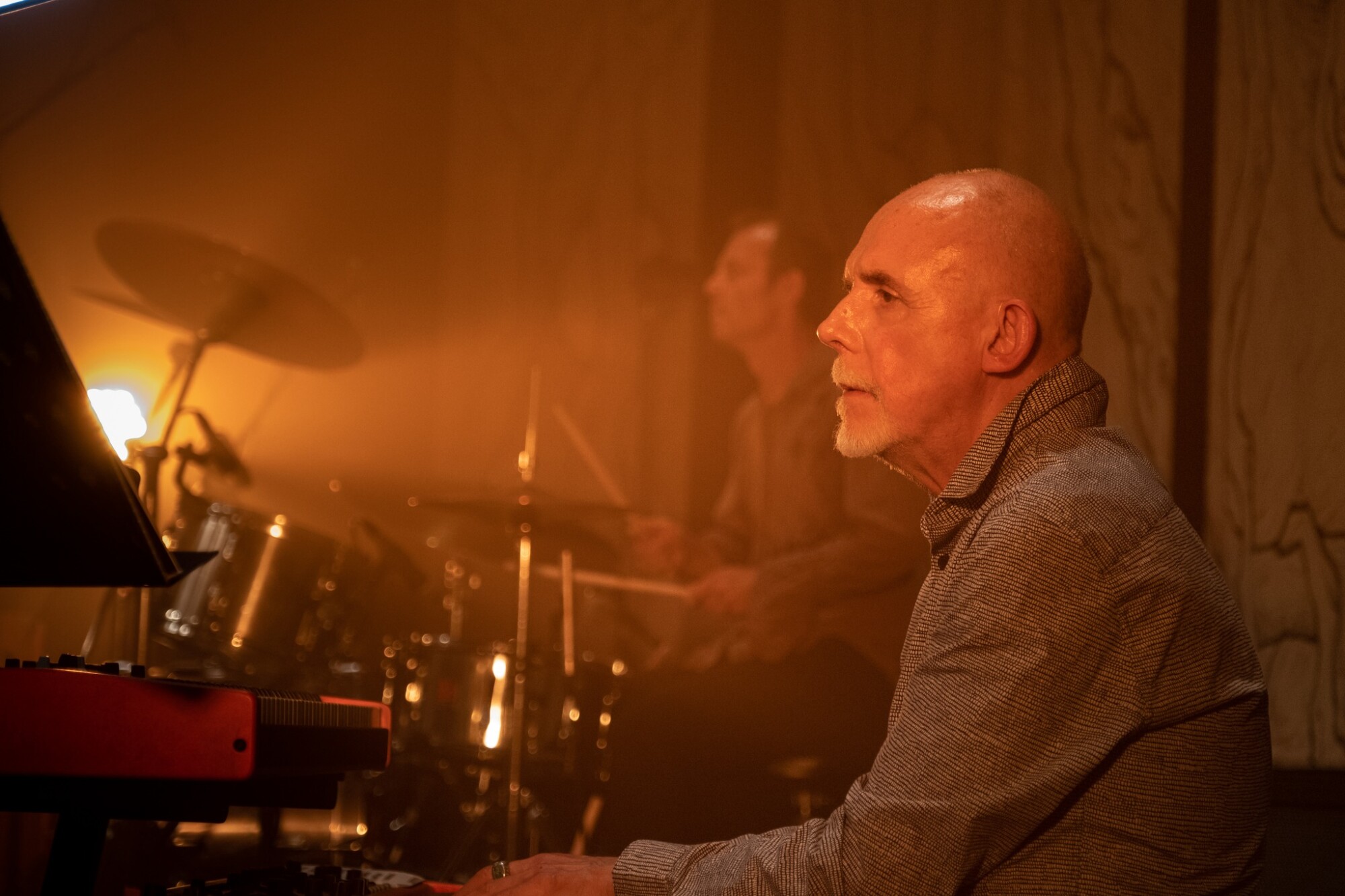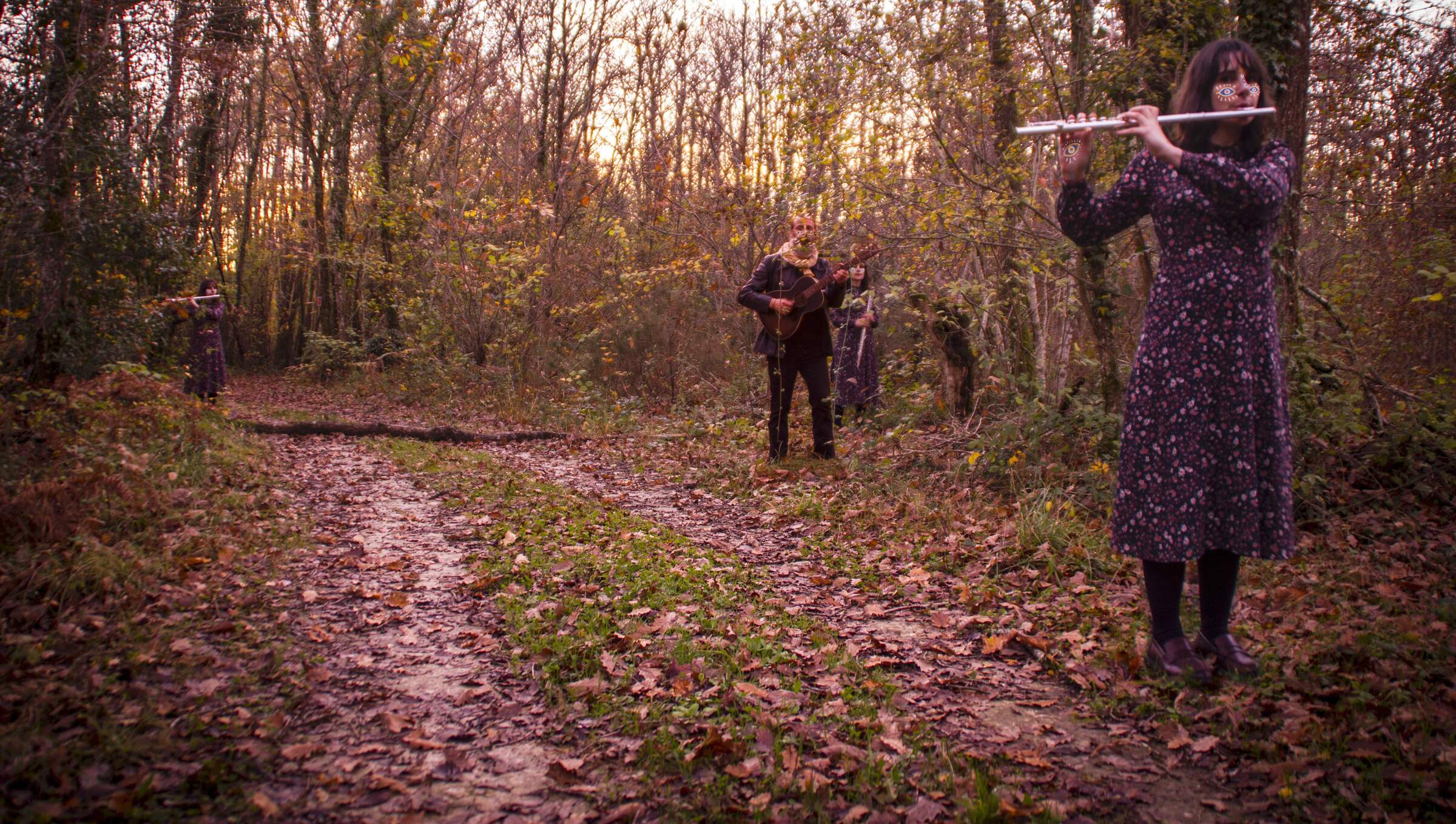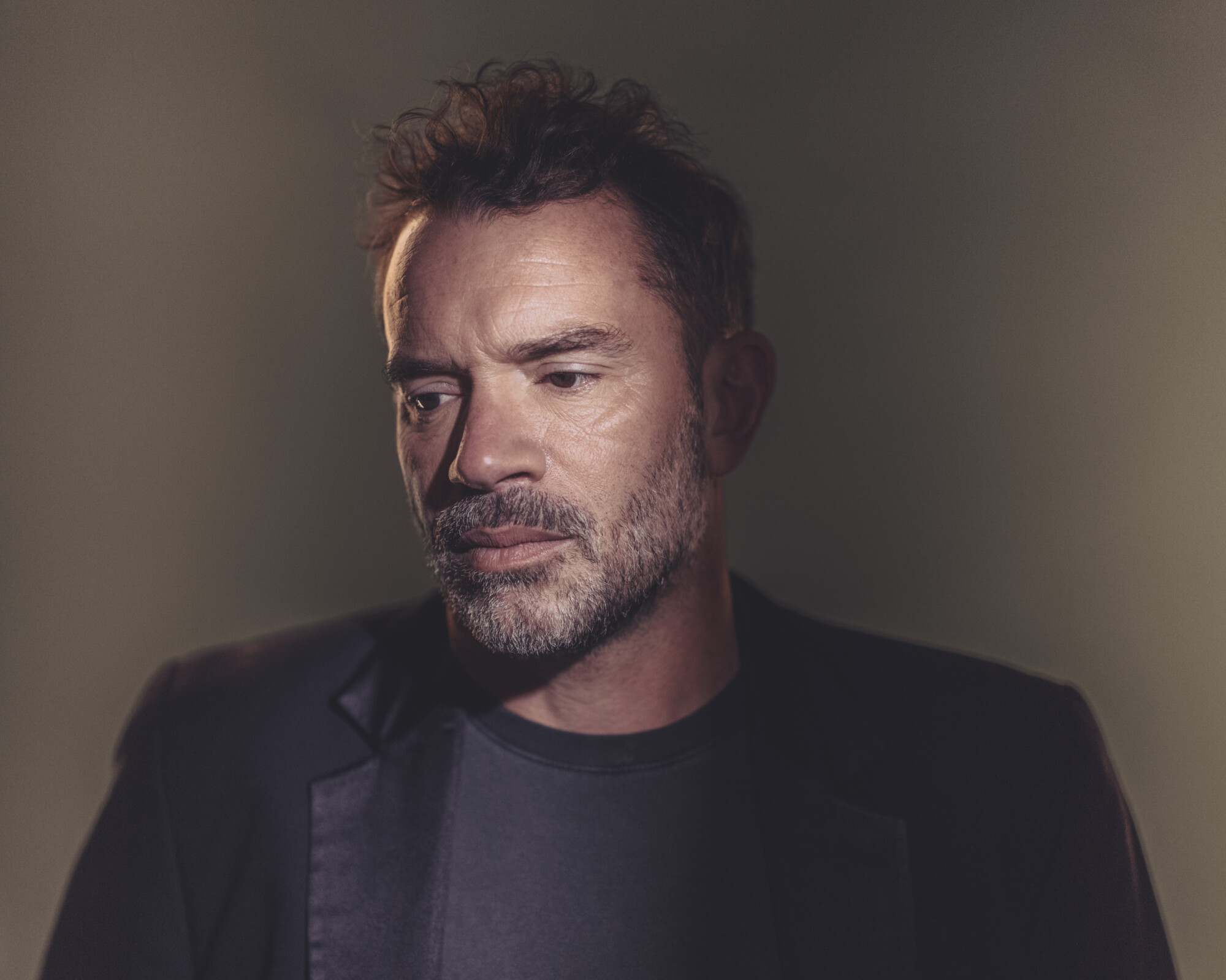Dave Formula | Interview | “It’s all about the chemistry within the band”
Dave Formula, known for his influential work with bands like Magazine and Visage, has left an indelible mark on the music scene over the years. His recent collaboration with the reformed band Affection Place marks a new chapter in his career.
Affection Place, originally active from 1979 to 1981, gained prominence performing in France and Switzerland alongside notable acts such as Magazine, The Cramps, and Marquis de Sade. In 2019, Affection Place officially reformed with original members Peter Petersen and Christian Bonnet, joined by new members Tim Petersen and Hamish McKay. Their reunion also led to a fruitful collaboration with Dave Formula, whose connection with the band dates back to their touring days with Magazine in 1980. Dave’s involvement in the recording process of their newest album is profound, as he produced the album and contributed to all 10 tracks.
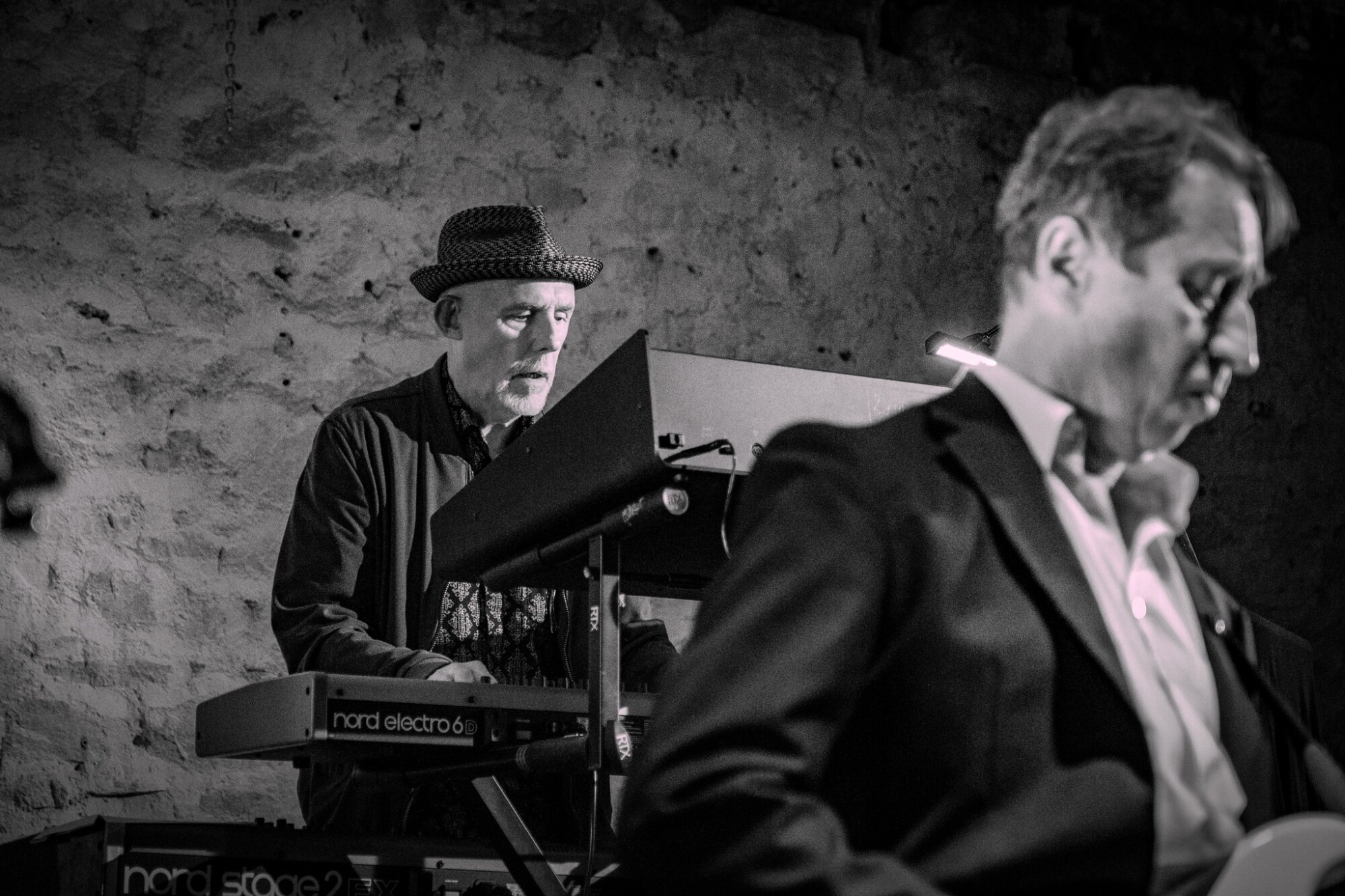
“It’s all about the chemistry within the band”
It’s really wonderful to have you. Do you remember the first time when you played at Affection Place?
Dave Formula: I mean, it’s been a long, long time. Forty odd years ago.
So, I remember the band. I remember Affection Place. We played together twice while we were in France.
And I remember a conversation, a conversation with Howard Trafford or John McGeough, saying, “Yeah, they’re really good, this band. It works really well as a complete evening.” In much the same way when Simple Minds supported me.
You know, the similarities, but enough differences to make it an interesting combination of two bands. But I can’t remember individuals or anything else, really. But yeah, I remember when Peter Petersen called me, you know, all those years later.
I remember the band, you know, the name was buried somewhere in my subconscious. So, you know, it came back when I spoke to them.
Did you stay in touch with the band all this time? Tell us about the recent collaboration you did with them.
No, it was just before the start of Covid when I got the phone call I just referred to. Peter Petersen rang and reminded me about the gigs we did together and asked if I would be interested in working together on an album, recording, and producing, etc.
So I said, “Yeah, that sounds great.” I started off obviously with Covid fully developed while we got going. It was just me working on the mixes, on the tracks myself.
The various audio tracks would be sent to me via the internet. I would download them, add keyboards, and then mix them and send them back. It was a shared process like that.
We were all happy with what we got. So yeah, it worked well. And then, of course, it was time to do the album.
Arrangements were made, by which time Hamish Mckay had joined the band. We had a very intense but fruitful, what was it, three weeks? Yeah, three weeks recording all the rhythm tracks and vocals.
After the band had returned to France, I added all the keyboards and started to mix and took it from there. So yeah, it worked really well.
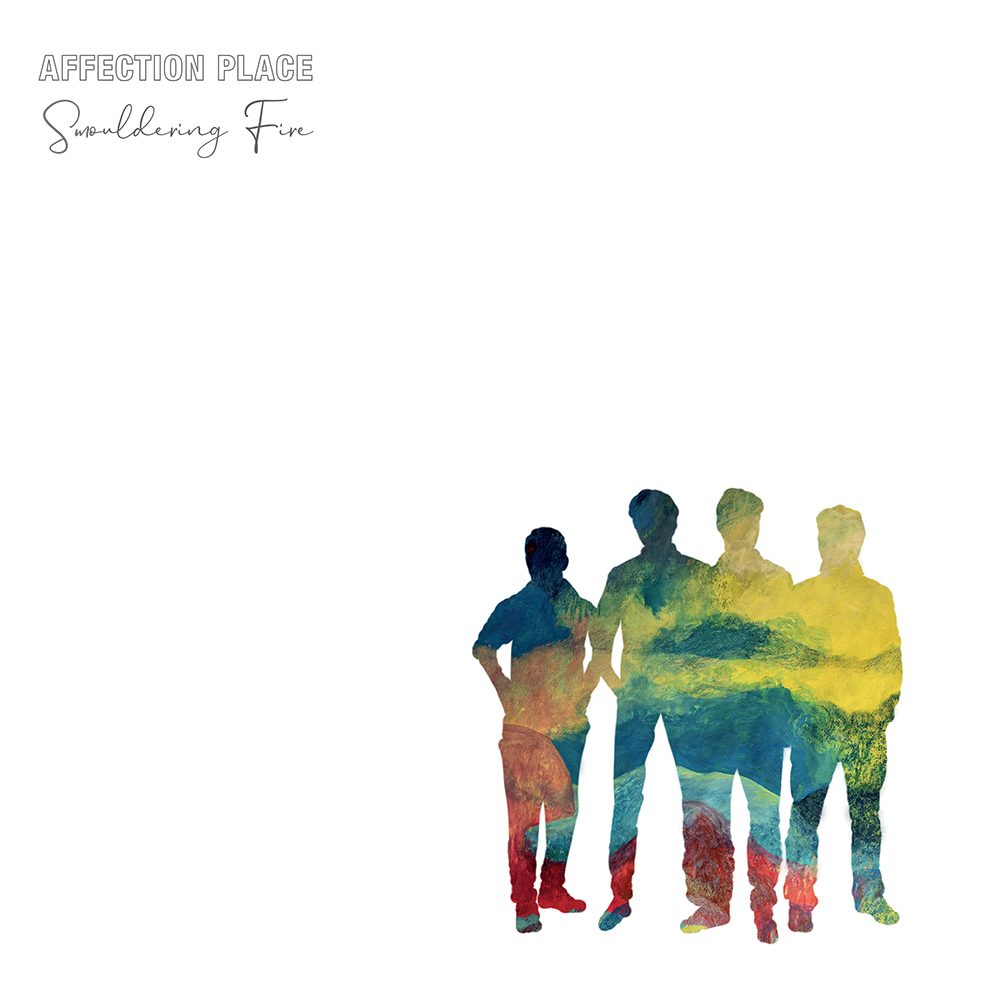
So what else occupies your life? Are you working on some other projects? Yes, I’ve been working over the last few months.
From September, on and off, with a young guy called Leon Blanchard. He’s a piano player, guitarist, singer, and songwriter. Yeah, he’s a very classy, classy songwriter.
We’ve recorded 24 tracks so far. Just released the first one as a taster for his album. That’s been going really well.
On the song ‘Drive,’ it’s called, I added a full string section which sounded really good. He was very pleased, so that’s why I said it’s very good. But my son Max, who’s a pro drummer, has played on all 24 tracks and also played bass on all the tracks.
So keeping it in the family, really. But yeah, watch out for him, Leon Blanchard. Really good.
I’ve also recorded and mixed a band in the last couple of months. A band called Bark, B-A-R-K, Bark.
One of the guys lives in Copenhagen, the other one in Portugal, and the other guy in London. They’re an electronic improvisational trio.
So, I mean it’s very different from anything I’ve done in a long time. It’s all improvised in the studio. They came in for a few days and recorded nearly three hours of music.
And then came back a few weeks, well, about a month and a half later, and I mixed it all. Very intense, but yeah, really good. Very clever the way they do it.
So that’s not out yet, that’s coming out I think in April or May. Interesting band. Of course, I’ve been doing lots of my own music over the years. Since I extended the studio in 2017, I added a large live room to the original studio. I’ve been doing lots of new songs, mainly instrumentals, on my own. So I’ve got about 24 or 25 of those.
Which I will get around to finishing at some point. So yeah, I keep busy. I’m still doing the lion taming.
Would love if you could speak about the very early years? Was there a certain moment when you knew you wanted to be involved with music? What was the Manchester scene like in the 60s?
Yeah, it’s kind of inevitable that I would start playing an instrument because my family, my mum, and my dad’s brother all played piano. My dad played in dance bands all his life and in clubs. Not as a pro, as a semi-pro. He worked during the day but also played two or three nights every week. So yeah, I went to parties, Christmas parties, and all his brothers and sisters played the piano.
So it was inevitable that I would be sent to piano lessons, which I sort of liked. Well, I liked it even more when I got to be about 11 or 12.
And my piano teacher was quite progressive. Instead of giving me all dreary classical piano pieces, she used to give me whatever was in the charts at the time. So I was able to play pop tunes and impress all my friends. So that was a good introduction to the power of music on other people, if you like. But at the same time, I thought I wanted to go into acting.
Because I’d joined a youth theatre by then. And a few of my friends had, so I did that. I felt I was okay at it.
But as I got older, when I got to about 15, 16, I realized it was all a bit too fake for me. I fancied something a bit more… Something like music seemed a lot more appealing. By that time, the Beatles had appeared and the Rolling Stones.
That definitely was the way to go forward as far as I was concerned. And my mates that were in the theatre, the youth theatre, could play a bit. One was a singer.
And the St. Louis Union eventually formed from that group of friends from the Manchester Youth Theatre. So we started playing blues and original kind of R&B. And won the Melody Maker Beat Contest of all things. Melody Maker was a very popular pop music… Well, it was a jazz journal initially, then it went over to more commercial. And became like the NME, one of the papers that covered all punk and anything else that was happening. So we went into this competition and won it.
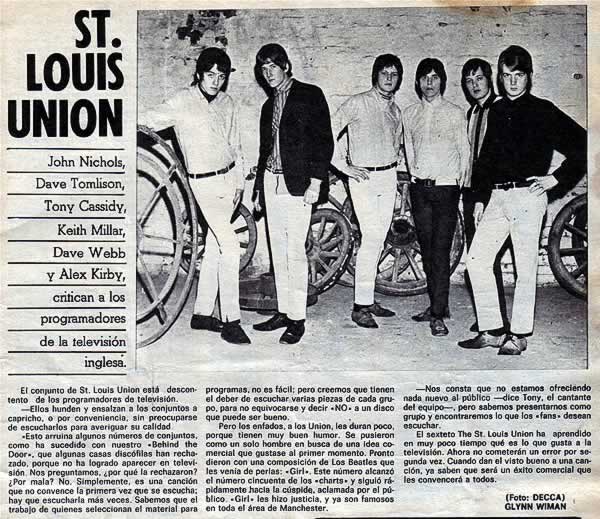
We beat the Pink Floyd. They came about fourth or something like that. So from that, we got a Decca recording contract.
I got another Hammond organ. Got loads of moddy clothes. You know, loads of stuff.
As a result of that, we got a big agent in Manchester. And we recorded the Beatles song and got a top ten hit. In a way, it was the worst thing we did because it wasn’t anything what we did it was a ballad we recorded called ‘Girl’. And it was so unlike what we did. In a lot of ways, it spoiled things for us. Because we became known as a kind of, you know, pop band. But by this time, we were playing a lot more soul music. It was great fun. Went to lots of television shows.
Did a TV show with the Small Faces. Where we did comedy sketches with the Small Faces. Played songs and stuff.
Yeah, we met lots of people. And had a great time. But it was all over.
By the time I was 21, it was all over. But it was a great insight into being in a band, touring. And knowing what you need to do on stage.
What would you say influenced you the most while being in Magazine?
That’s a very open-ended question, in a way. I mean, I’m sure it was quite intense.
The whole process of joining the band was quite intense. Howard Trafford was very careful. I had to go through almost a probation period.
Because a previous keyboard player didn’t work out at all. He only did about 2 or 3 gigs with them and then left. But I suppose he was being careful to get the right person.
So that was quite intense. So when I joined, it was a voyage of discovery for everyone. Because I suppose I changed things a lot.
From just a guitar band to adding lots of different flavors with all the people. Without sounding trite. John McGeough and Barry Adamson particularly influenced me in their approach to music. They were so fresh.
And so, well, when I say fresh, that kind of says it. But not jaded. Like a lot of the older musicians I’d worked with, in between being in the same movie and in a magazine, they’d been around a long time and they were quite cynical.
So luckily I think I remained uncynical for that period. But it was refreshing to come across two people that were younger than me. Barry was only 18 and John was, I think, 22 maybe.
Howard was 24. So yeah, I think we all influenced each other greatly. And that’s how ‘Real Life’ ended up sounding like it did.
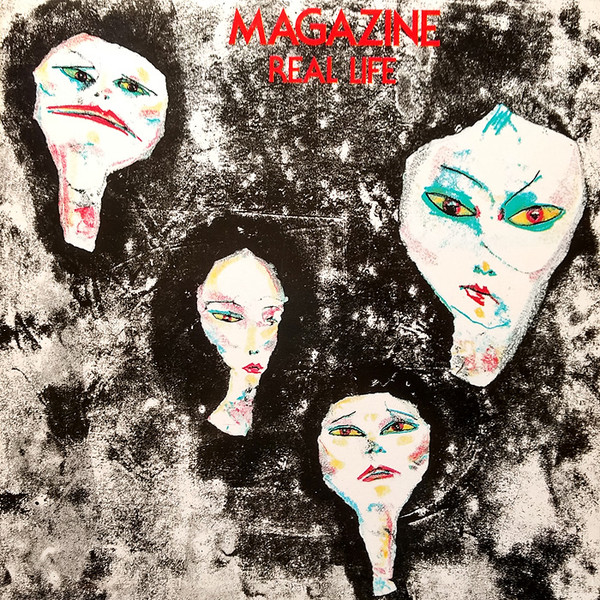
And all the other albums sounded like they did. Because of our… You know, I’ve always maintained that the best bands are the sum of various… Not everyone in the band having the same influences. Everyone having different influences.
But enough influences that coincide with each one in the band. But having enough common influences and variations to make an original sound. Okay, yeah. But having enough common influences and variations to make an original sound.
You know, I think you need to have a combination of your own influences and joint influences. Do you understand what I’m trying to say? So yeah, I think we were very lucky in that that created the right chemistry to create whatever magazine we’re trying to create from that point. Yeah, I had some of the best times in my life.
Touring America particularly. So yeah, I absolutely enjoyed it. Very much so.
John and I became very good friends. Used to do lots of things. We were touring all the time.
We’d make an album, then we’d go on tour. Then we’d come back, write a song, make an album, go on tour again. So, you know, it was non-stop really.
When we toured in different countries particularly, John and I would always make an effort most days to get up and go and have a look at the city or the town we were in. You know, go to the galleries, go to the museums, try the restaurants. Just trying to get a flavor.
Because every day starts to seem the same if you don’t do that. But yeah, it was a great time.
And it led to other things. Like Visage. Which, although it was a part-time side issue that I just did for a bit of fun really.
Again, it ended up being very successful. And allowed me to do other things later in my career. Like building a recording studio in London.
“We had a great time because we worked with the ideal producer for the band’s first album”
Okay. So, listening from today’s perspective, what are some of the highlights from your debut album by Magazine?
Well, ‘Real Life’ was, apart from some demos we did for ‘Real Life’ before we went to record it, my first proper time recording. Because I didn’t appear on the original first single, ‘Shot by Both Sides’.
That didn’t have any keyboards on it at all. Well, we re-recorded it when we recorded ‘Real Life’. And it had me playing piano and organ on it, on the album. But yeah, it was fantastic. Because we toured for enough time to get the songs really tight that we were going to record.
So it wasn’t that kind of indulgent thing of writing in the studio and taking forever. You know, we were able to record the rhythm tracks really quickly and make them sound really good. So it was a really forward-moving creative process.
So we did quite a lot of it in a place called Ridge Farm, a residential studio. And then we moved to Abbey Road and spent nearly a month there. Doing some vocals, some grand piano, lots of synth bits.
I hired in quite a lot of synthesizers to add different flavors. And we did the mixing at Abbey Road, which was fantastic. Because we stayed in Swiss Cottage, which was quite near.
We could just walk down Abbey Road. We had a great time because we worked with the ideal producer for the band’s first album, which is John Leckie. Who went on to a lot of success obviously with lots of other well-known bands.
But yeah, John had been working at Abbey Road since he started being an engineer really. He actually worked on some of the later Beatles stuff as an assistant engineer. So he was really experienced, but still a pretty young guy.
He was older than us, but not much older. He’s probably closer to my age actually than the rest of the guys in Magazine. So he had a great engineer that he worked with, Hayden.
So it was just a great time. And it was really thrilling because the mixes were sounding great. And I spent a memorable morning with him, with John Leckie.
In the Beatles, the famous, known as the Beatles Studio, Studio 2 I think it’s called. Upstairs in the control room, adding all the… In a song called ‘Primitive Gaze,’ on ‘Real Life’. It breaks down in the middle and goes off into this sort of psychedelic weird bit.
Which is all me on synths. And I added all these synths and John and I just made lots of loops. Just spent the morning having fun with synthesizers and loops to add on the ‘Primitive Gaze’. So yeah, it was brilliant. I remember it very fondly.
Would you be able to draw any parallels between ‘Real Life’ and ‘Secondhand Daylight,’ what about ‘The Correct Use of Soap’ and ‘Magic, Murder and the Weather’?
I’d say that the first three, ‘Real Life,’ ‘Correct Use of Soap,’ and ‘Secondhand Daylight,’ there was a really strong element of what Magazine was running through those three. All moved and progressed and changed as we were experimenting with different areas that we could work with together.
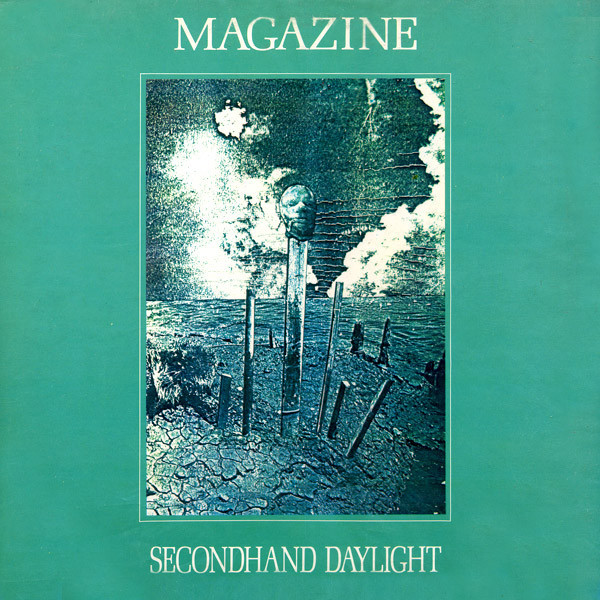
So I’d say that even though they sound quite a lot different in many cases, obviously there are a lot of similarities in our individual style of playing and our very individual style of singing. But that is the thread.
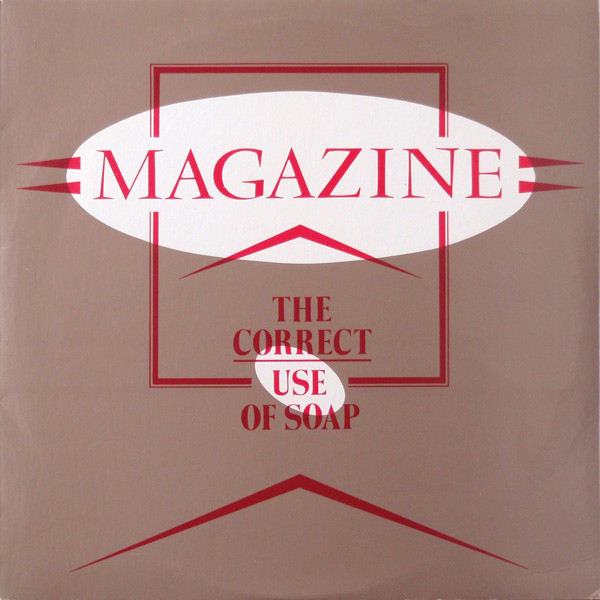
So there’s a real similarity, I think. And we worked in quite a similar way with the process of recording. But ‘Magic, Murder, and the Weather,’ in a way, is very different for me. And I think for Howard and probably Barry and John, the drummer. Because John wasn’t on it. It was difficult because John wasn’t there.
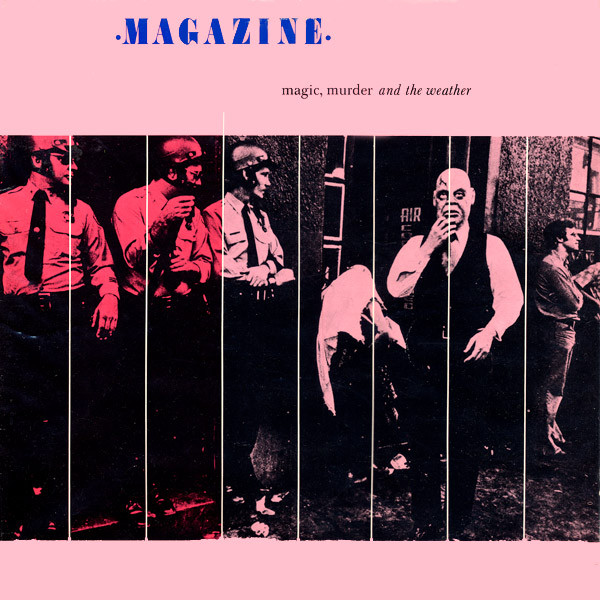
And he was absolutely essential to what Magazine was. The chemistry had broken. The chemistry wasn’t the same.
And while the people we used did the best they could under the circumstances. To me, although it was a Magazine record, it wasn’t a full Magazine record. Sure.
Is there any unreleased material by project bands?
Well, the one I mentioned earlier, Leon Blanchard. Only one of the 24 songs I’ve recorded has come out so far. But yeah, we’ll be picking 11 or 12 to go on an album which will come out later in the year.
And I suppose at some point hopefully, if I’m still around, I’ll put an album out of some of the tracks I’ve recorded. But yeah, there’s quite a lot to come out. But yeah, I keep busy.
I like to be doing stuff in the studio as much as I can. I really enjoy doing it. You know, I look forward to the next Affection Place album.
Is there any unreleased material by project bands?
Regarding the most important players that influenced my own style, I would say originality, technique, and, if possible, a sense of humor in their playing were key factors. As for specific albums I like, well, it’s all about the chemistry within the band and how that plays out. So, in a way, it’s a combination question. Naming albums that I like would tie back to the influence of players and their styles, which ultimately contribute to the overall chemistry of the music. So, yeah, that’s what I’m trying to convey.
Let’s end this interview with some of your favorite albums. Have you found something new lately you would like to recommend to our readers?
Ok, well I’ll give you the favorites and then I’ll give you the new stuff. Is that ok? That’s fine. Ok.
Well, likes, albums, pretty much anything by Miles Davis, Duke Ellington, British tenor player Tubby Hayes, Donald Fagen, Zappa, Joe Zawinul who’s a tenor player with Miles Davis and Weather Report. The Band that worked with Dylan, pretty much any ska music. I like most original ska music before it turned into reggae.
Not that I don’t like reggae, I like some of it. And dub, I’m very fond of a lot of dub music. So, you know, I’ve been collecting records and listening to music for 60 odd years, so for me to name favorite albums is virtually impossible. But I think there’s enough there, it’s quite a wide variety, perhaps a little bit heavy on the jazz, but there’s lots of other stuff in there as well. Joe Zawinul and Herbie Hancock are particular influences on my keyboard playing, I’d say. But so is Dr. John as well, people, you know, real piano players like Dr. John. They don’t use electronics, they’re just a straight a head in the audience piano player. So, yeah, they’re the sort of people that have kind of influenced me as a piano player, certainly.
Zawinul particularly as an electronic synthesizer player. As far as what I’ve been listening to and what I’d recommend, yeah, I’ve been really enjoying a new album by a woman from Copenhagen called Astrid Sonne. Astrid, as Astrid is spelt, Son, S-O-N-N-E.
A new album called ‘Great Doubt’. And she’s essentially, you know, went to a conservatoire to play viola. I think she played violin as well, but her main instrument was viola.
But there seems to be quite a few Scandinavian women that have gone down a similar route, classical route, and then moved into more ambient electronic recording. And she’s kind of a little bit in that area, but I’d say she’s very individual in her approach, and she really mixes the acoustic viola really cleverly with the textures she uses. And I think pretty much for the first time, she sings on most of the songs, and she’s got a really good voice.
Apparently she didn’t like to sing on all of the albums because she thought she couldn’t write lyrics. But yeah, I mean, it’s a really good album. I’ve listened to it several times, but the second time I listened to it, you know, I pretty much recognized most of the songs.
Which is pretty good, you don’t normally get that with that kind of music. And yeah, it’s very nice. It’s that sort of music that you can actually listen to it from the point of view of listening to, taking on the lyrics and what you’re singing about and the context, or it works really well almost as just sort of an ambient thing as well while you’re doing other things.
So yeah, I’d recommend anyone have a listen to that. Yeah, Astrid’s songs are great. I think she’s moved to London now.
She’s doing some dates in London at the RCA for a couple of days later in the year. So yeah, that would be my tip for the top at the moment. And the other album I’ve really enjoyed listening to recently is, it’s a French band.
I think it’s called, I can’t remember the title, but it’s a band called Affection Place. Yeah, it’s very good. I’d definitely listen to that.
Have you heard of it? Yes. What’s it called? It’s called ‘Smouldering Fire’. ‘Smouldering Fire,’ that’s it. Yeah, ‘Smouldering Fire’ by Affection Place. It’s quality, it’s a quality album, there’s a lot of good people on it. Yes, I concur.
Any other ideas for music?
Check out any of those people that I named as people that have influenced me, and I’ve listened to them all my life. And you won’t go far wrong. Good, okay.
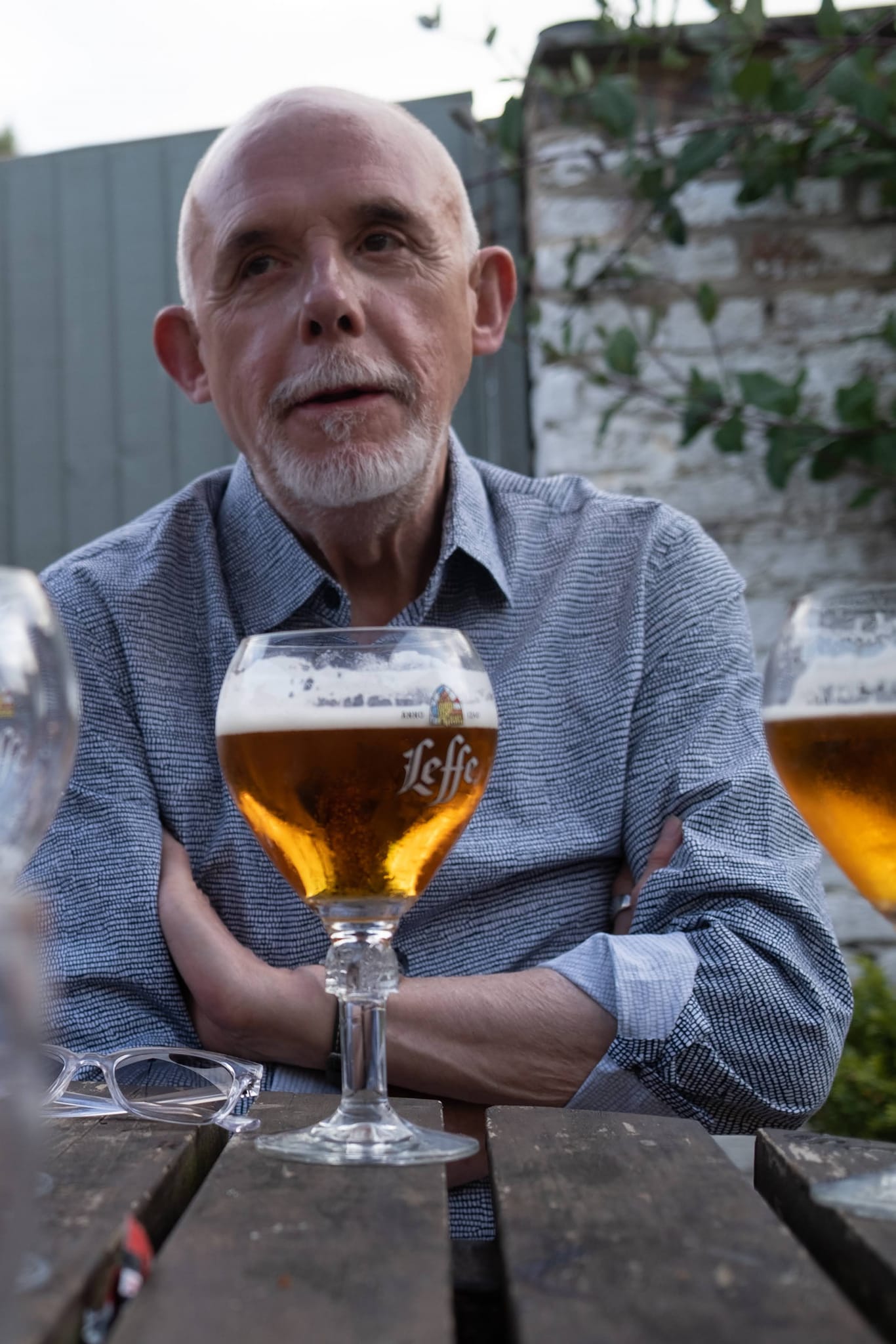
Thank you for taking the time. The last word is yours.
Well, thank you for giving me the opportunity to talk about my life in music and the reunion of Affection Place and myself.
Yeah, it was a really good thing that we all met, and I really enjoyed working with the band. And here’s to carrying on in the future. Hear, hear.
My last word is goodbye. Is that two words?
Klemen Brezniker
Audio transcription by Hamish Mckay
Headline photo: Peter Dumber
Dave Formula Facebook

